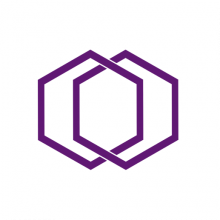
There are 6 Companies in Ethiopia
that provide Azure Platform Services!
Ethiopia is more known for its safari, national parks, and UNESCO heritage sites. Also, in Ethiopia people are coming more for observing wildlife and lions in their natural habitat - so far, nothing about the IT sector.
Discover Top IT Companies in Ethiopia specialized in Azure Platform and other related services. Find the best IT service providers for your projects.
Azure Platform, developed by Microsoft, stands as a versatile cloud computing platform known for its ability to empower organizations with a wide range of cloud-based solutions. It offers a comprehensive suite of services and tools designed to support businesses in their digital transformation journey.
Handpicked companies • No obligation to hire • 100% risk-free
Explore Top Azure Platform Companies in Ethiopia
Empower businesses through digital transformation
Elevate Your Digital Presence with Seamless Designs
Services:
At Facezila Platforms Pvt. Ltd., we are a passionate and creative team dedicated to crafting websites that make a real difference for your business.

Addis Ababa, Ethiopia Head office in: United Arab Emirates
Paperless Technology is a global technology company, that enables successful digital transformation initiatives for Business across Africa!
At Sebez System Technology, we prioritize quality in every aspect of our work.
One Line At A Time
Filter Azure Platform Companies in Ethiopia by Cities
Dive deeper and find the company you need close to you or, from a specific city you prefer. Some of the best companies come from smaller places
Find more Azure Platform companies around the world
TechBehemoths is the world's most advanced and user-friendly platform to match IT Companies with real clients without hustle.
The IT Industry in Ethiopia: Data & Insights
Ethiopia is more known for its safari, national parks, and UNESCO heritage sites. Also, in Ethiopia people are coming more for observing wildlife and lions in their natural habitat - so far, nothing about the IT sector. But it’s no surprise, since the World Bank ranked Ethiopia 141/190 in the ease of doing business, and this may look somehow intimidating both for investors and for potentially interested clients of IT companies. Now, in 2020 when you have the whole of Europe, the Americas, and Asia, almost no one would choose an African country for digital services.
With all these, Ethiopia made huge progress in the digital sector, and local companies are providing non-financial aid to interested investors in their IT sector. Consulting, co-working spaces with views to safari, and mentoring are only a few of the services you can benefit from in Ethiopia. Also, in the context of Covid-19, the country entered the Green Zone, with around 10 cases in the entire country.
Why you should work with Ethiopian IT companies
So, obviously, you will not find in Ethiopia a well-developed IT infrastructure and the industry overall. However, you may find in Ethiopia a friendly ecosystem that will help you develop the industry, and this may be very rewarding.
Not so many Ethiopians IT companies are present on the local market, and the ones that exist are doing BPO and working for foreign customers from their operational centers located across the country. It’s a strategic location and a friendly business environment can make the country for many a great place where you can combine business with a vacation.
There are no specific restrictions and things that you should know about Ethiopia when visiting it, except that you can enjoy your time and do the work you planned to do.
What to pay attention to when working with Ethiopian IT companies
On the other hand, there are specific risks one may be exposed to in Ethiopia. The undeveloped IT industry, language barriers, and inexperienced developers and project managers can be a headache if Ethiopian IT companies were chosen as partners in a digital project. These risk factors come in contrast with the benefits the country has to offer, so taking a decision in this direction is an important step.
How reliable are Ethiopian IT companies
You can’t really tell if Ethiopian IT companies are reliable or not. Simply because the local digital agencies didn’t take a chance to make a name for themselves on the international market - the country has a chance now to attract investors, create businesses that provide decent service quality, and start developing the country IT sector to a certain level.
How the Ethiopian IT sector relates to the neighboring countries
In the region, there are countries that perform better and lower than Ethiopia. Even though the development levels of the IT sector are not comparable between Ethiopia and its neighboring countries, Kenya and Congo have managed to become the hosts of some international IT companies, but that’s probably because of the location rather than because of development. On the other hand, Uganda, Rwanda, and Burundi – the other neighboring countries, are far from implementing digitalization at the level Ethiopia is today. Another thing that worth mentioning is that the main investor in East Africa is China and its companies. Probably, this will help the countries to develop at least in some fields which are more essential than IT.
What is Azure Platform and what are its benefits for your projects?
Azure Platform, developed by Microsoft, stands as a versatile cloud computing platform known for its ability to empower organizations with a wide range of cloud-based solutions. It offers a comprehensive suite of services and tools designed to support businesses in their digital transformation journey.
There are more than 2722 IT companies that specialize in providing Azure Platform services to businesses across the globe. These companies serve as strategic partners, helping organizations leverage Azure to achieve their goals. Notable IT service providers in this domain include Accenture, Capgemini, Infosys, and Deloitte. They offer a spectrum of services, from Azure consulting and implementation to ongoing management and support.
Azure Platform service providers employ a combination of tools and technologies to deliver effective solutions. This may include Azure DevOps for continuous integration and deployment, Azure Monitor for performance tracking, and Azure Resource Manager for resource provisioning and management. It's essential to differentiate between Azure and Azure Platform: while Azure refers to the cloud platform itself, Azure Platform encompasses the set of services, solutions, and expertise offered by IT companies to optimize Azure for specific business needs.
Azure Platform is not limited to a single service but comprises a rich ecosystem of interconnected offerings. Related services include Azure Virtual Machines for scalable computing, Azure Kubernetes Service for container orchestration, Azure AI for artificial intelligence capabilities, Azure Data Services for robust data management, and Azure Security Center for enhancing security posture.
Selecting the right IT company for Azure Platform services is a critical decision. To make an informed choice, consider factors such as the provider's experience with Azure, client references, industry expertise, and the range of services they offer. Assess their ability to align Azure solutions with your business objectives, scalability requirements, and ongoing support capabilities.
Azure Platform services find applications in a wide array of projects, including:
-
Enterprise Resource Planning (ERP) Systems: Implementing scalable ERP systems to streamline business processes.
-
E-commerce Solutions: Building and managing high-performance e-commerce websites and platforms.
-
Big Data Analytics: Leveraging Azure's data analytics tools for data-driven insights.
-
IoT Solutions: Developing IoT applications for device management and data analysis.
-
AI and Machine Learning Projects: Building intelligent applications for predictive analytics and automation.
-
Cloud Migration: Migrating on-premises infrastructure to Azure for cost savings and scalability.
-
Cybersecurity Initiatives: Strengthening security through Azure's robust security services and monitoring capabilities.
-
Hybrid Cloud Deployments: Implementing a hybrid cloud strategy for data backup, recovery, and business continuity.




